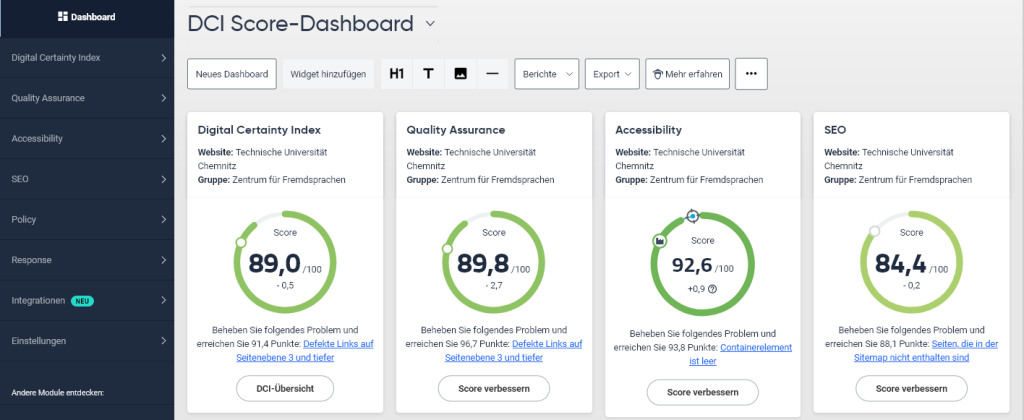Since 23.09.2020, the following applies to public institutions: All websites and documents published after 23 September 2018 must be completely accessible for people with disability. In order to be able to provide the content accordingly, knowledge of the requirements for the documents and the process of their creation and verification is necessary. There should also be corresponding support services in the form of training and knowledge exchange. The TU Chemnitz sets a good example here and, with all its accessibility support services, is often used at conferences as a best-practice example for creating accessible content or invited to present the processes for removing barriers. In addition to the central homepage and the training courses, our web tools and documentation are also praised. The weekly consultation hour “Web and accessible documents”, which offers quick help on the topic, is seen as particularly positive. The OPAL network “Accessibility at the TU Chemnitz” is also available for any kind of questions about digital accessibility.
As the central web coordinator for digital accessibility, such positive feedback from outside always makes me very happy and proud. At the same time, I notice time and again that the topic of accessibility has not yet reached every institution or professorship or all those responsible for content. In addition to ongoing awareness-raising on the topic, regular training is necessary for staff and assigned assistants. We are laying a good foundation with the sum of support we offer. However, the distribution and dissemination of knowledge about digital accessibility and the processes involved in the creation of documents is very important.
Current offers, Tools
In the summer semester of 2022, training courses for the creation of accessible documents with various programmes were held. Together with trained students, it was once again possible to remove barriers from a large number of PDF documents, e.g. in the departments.
For more than a year now, we have also been using the Siteimprove monitoring system, which permanently checks our website and distributes the results to the staff members responsible for the area. In addition to Siteimprove, other tools for optimising processes were also purchased from the special inclusion funds of the Saxon State Ministry for Science and the Arts (SMWK). This includes, for example, several licences of the axesWord add-in for Microsoft Word. With the help of this add-on, the saving process of Word documents can be quickly implemented in such a way that most technical errors are directly eliminated.

In all activities, it becomes clear that newly created web pages and documents are constantly being added and the knowledge around the topic of digital accessibility must be completely distributed. If the multitude of support offers is not permanently offered and used, this new content will quickly be covered with barriers again.


Leave a Reply
You must be logged in to post a comment.